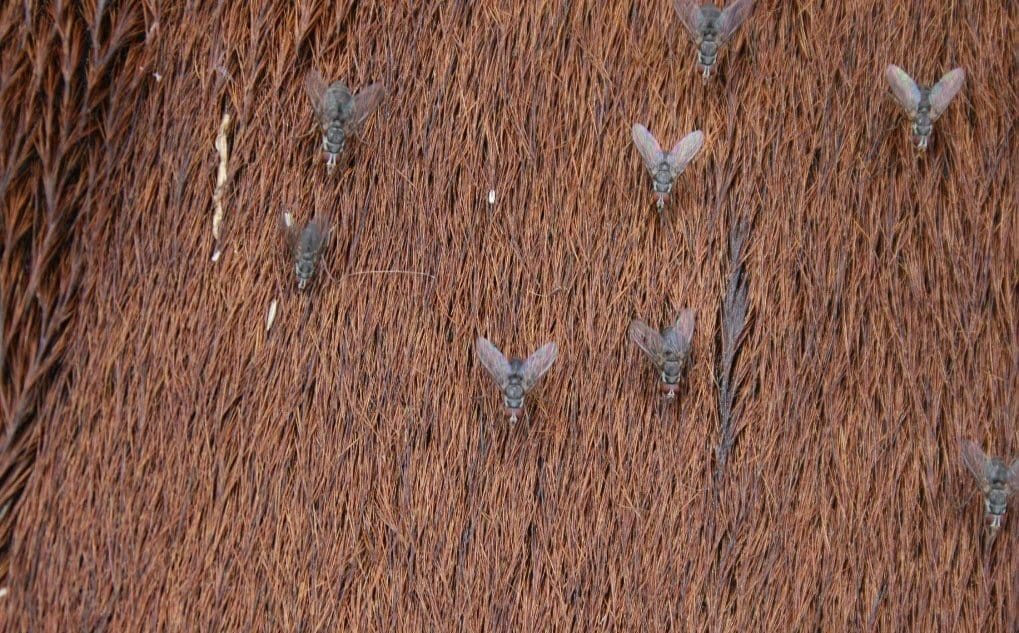A RANGE of agricultural products containing the active constitutent diazinon, including widely used insecticidal cattle ear tags and sheep blowfly and lice treatments, will be removed from the market despite wool grower opposition.
 An Australian Pesticides and Veterinary Medicines Authority notice said that following an extensive review it was not satisfied that the active constituent and chemical products included in the review meet safety or labelling criteria under the Agvet Code.
An Australian Pesticides and Veterinary Medicines Authority notice said that following an extensive review it was not satisfied that the active constituent and chemical products included in the review meet safety or labelling criteria under the Agvet Code.
The regulator said it had received 10 submissions during a public consultation period but determined they did not contain any information that would alter its earlier assessments.
From 10 September 2025 it will be an offence against the AgVet code to have possession of custody of the cancelled active constituents and chemical products.
The full list of cancelled products can be found on the APVMA website here.
Diazinon is an organophosphorus insecticide.
In its submission to the review process Cattle Australia said several products of the products listed in the review including insecticidal cattle ear tags sold under the brand names Y-Tex Optimizer, Y-Tex Warrior, Patriot and Co-Ral Plus were used extensively in the northern cattle industry, and play a critical role in northern Australian animal welfare and biosecurity management.
A 2022 Meat & Livestock Australia report identified buffalo fly and cattle ticks as two of the highest cost endemic disease issues for the Australian red meat industry.
Insecticidal cattle ear tags played a key role in actively managing insect bites that if present restrict trade to key live export markets.
Cattle Australia noted in its submission that the APVMA’s assessment of ear tag, back rubber, rubbing post and sprays containing diazinon had been made in light of some international diazinon Maximum Residue Limits (MRLs) for animal commodities having been recently lowered or withdrawn, and urged the APVMA to seek additional data on the MRL levels that result from ear tag usage.
It also noted that the current market for insecticidal ear tags was narrow, with only Nutrien and Elanco serving as suppliers.
Eliminating these products from the Australian landscape would leave cattle producers without a viable rotation strategy, further exacerbating the issue of resistance.
“The significance of having a variety of tools to combat fly bites cannot be overstated,” CA’s submission said.
“Biting flies not only cause discomfort and stress to cattle, pose a significant biosecurity risk and also result in economic losses due to reduced productivity and potential health issues.
“Therefore, having access to multiple products and strategies is essential for effective pest management.”
Wool Producers Australia’s submission also highlighted the limited number of products available to producers to mitigate animal health and welfare challenges.
“With increasing resistance and the breakdown of other chemicals the last thing industry can afford is to lose access to effective treatments.
“The deregistration of the products in this review would see even less products available for wool growers to combat flystrike and lice.”
WoolProducers also urged the APVMA to assess the volume of these products in commercial use before de-registration announcement and expedite any pending product registrations that will assist Australian woolgrowers to manage flystrike and lice in sheep flocks.
In its response to the submissions, the APVMA said it acknowledged the importance of alternative modes of action for managing resistance to pesticides within pest populations.
However, it said it was not the APVMA’s role to identify chemicals that may be used to control a pest, or to carry out research to support existing chemical products.
“It remains open to industry peak-bodies or holders to commission studies that may be able to address the concerns identified in the Diazinon Review Technical Report, however these would need to be assessed separately and the APVMA is not able to delay a decision to accommodate any trials that may be conducted.
“The Agvet Code provides a maximum duration of one year for a permit for possession, custody and use taken to be issued under section 45B, in the event of cancellation of a product’s registration.
“There is no option for the APVMA to further extend this deemed permit.”
The Australian Pesticides and Veterinary Medicines Authority (APVMA) published its final decision on the reconsideration of diazinon, an insecticide and acaricide used for the control of pests in various agricultural, horticultural, commercial, and veterinary situations.
In its formal statement the APVMA said it has:
- varied and affirmed 4 chemical product registrations and associated label approvals where at least one use pattern is to be supported
- cancelled one active constituent approval, and 15 chemical product registrations and associated label approvals that do not meet the statutory safety, trade or labelling criteria
- varied and affirmed 2 remaining active constituent approvals to update the conditions of approval.
It also provides links to summary of diazinon uses, which are supported or not supported, on its website, and a summary of the underlying risk assessments in a Diazinon Final Review Technical Report.
A deemed permit authorises possession, custody, use and supply of the cancelled products and varied products bearing the previously approved labels for one year from the date of cancellation. Instructions for possession, custody, use and supply are provided in the Special Gazette of 10 September 2024.

HAVE YOUR SAY